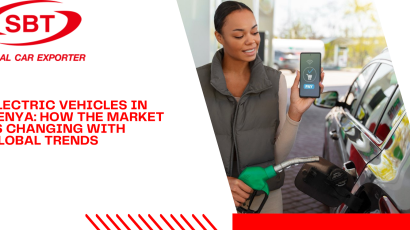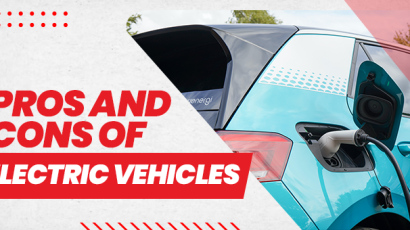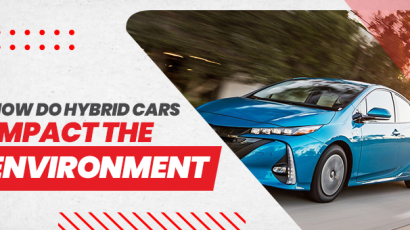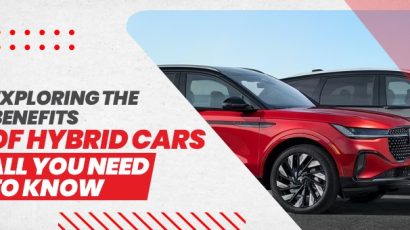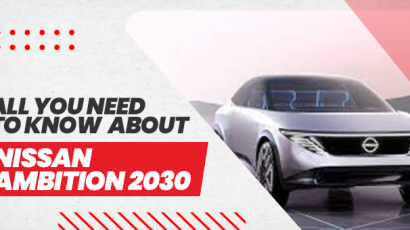
In the midst of a global energy revolution, the demand for sustainable transportation has never been greater due to growing concerns about climate change and the depletion of fossil fuels. While electric vehicles (EVs) have taken center stage, hydrogen-powered vehicles are becoming a strong alternative. However, are they the transportation of the future, or are they merely a fad? Let’s explore the potential of hydrogen-powered vehicles, the obstacles they face, and whether they are a true game changer.
The Science Behind Hydrogen-Powered Vehicles
How Do Hydrogen Cars Work?
Known as hydrogen fuel-cell cars (HFCVs), these vehicles use fuel cells to create power, in contrast to conventional gasoline or diesel automobiles. The process involves combining hydrogen with oxygen in a fuel cell, which then produces electricity to power an electric motor. The only byproduct? Water vapor. It makes hydrogen cars an eco-friendly alternative with zero carbon emissions.
Comparing Hydrogen Cars to Electric Vehicles
At first glance, hydrogen-powered vehicles and electric cars seem similar—they both use electricity to move. However, the way they generate and store energy is entirely different. While EVs rely on large lithium-ion batteries, hydrogen cars use fuel cells, which do not require lengthy charging times. It makes them a more convenient option for those looking for quick and efficient energy replenishment.
Additionally, hydrogen cars can avoid some of the drawbacks associated with EVs, such as battery degradation and limited availability of raw materials like lithium and cobalt. Since hydrogen is the most abundant element in the universe, it offers a virtually unlimited energy source. However, it requires that the right infrastructure is in place to harness and distribute it efficiently.
Another notable aspect is the ability of HFC vehicles to perform well in extreme temperatures. Unlike EV batteries, which may lose efficiency in very hot or cold climates, hydrogen fuel cells should be able to maintain consistent performance across different weather conditions. It could be a significant advantage for those living in regions with extreme seasonal variations.
The Advantages of Hydrogen-Powered Vehicles
Faster Refueling Time
One of the biggest advantages of hydrogen-powered vehicles will be their refueling speed. Unlike EVs, which often require hours to charge, you can refuel a hydrogen car in as little as five minutes—similar to a conventional gasoline vehicle. It makes them particularly appealing to long-distance travelers and commercial fleets as the technology becomes more widespread.
Longer Driving Range
Another major benefit will be their extended driving range. Vehicles fuelled by hydrogen can travel 350 to 400 miles on a single tank, whereas many electric vehicles can only go 200 to 300 miles between charges. EV customers frequently worry about range anxiety, which is lessened by this greater range.
Zero Emissions and Environmental Benefits
Hydrogen-powered vehicles produce no harmful emissions—just pure water vapor. It makes them an excellent option for reducing greenhouse gas emissions, especially in urban areas where air pollution is a significant problem.
Lighter Weight
Batteries in electric cars are heavy, often weighing thousands of pounds. Hydrogen fuel cells, on the other hand, are much lighter, contributing to better fuel efficiency and improved vehicle performance.
Versatility in Applications
Beyond passenger cars, hydrogen fuel cells will have the potential to revolutionize various industries. Hydrogen is already being tested in buses, trains, airplanes, and even marine transport. Its scalability and ability to power heavy-duty applications make it an attractive option for reducing emissions across multiple transportation sectors.
Energy Storage and Grid Stability
Another often-overlooked benefit of hydrogen fuel cell technology is its potential as an energy storage solution. Hydrogen can be produced during times of excess renewable energy production and stored for later use. It could help stabilize electricity grids and provide reliable backup power during shortages or emergencies.
The Challenges Facing Hydrogen-Powered Vehicles
High Production Costs
One of the biggest barriers to widespread adoption is the high cost of production. Hydrogen fuel cells are expensive to manufacture, and the infrastructure required to support hydrogen refueling stations is costly to build.
Limited Refueling Infrastructure
Currently, hydrogen refueling stations are scarce, making it challenging for drivers to find convenient locations to refuel. Unlike EV charging stations, which are becoming increasingly widespread, hydrogen infrastructure is still in its infancy.
Energy Efficiency Concerns
While hydrogen is abundant, producing it requires energy-intensive processes. Most hydrogen is currently extracted from natural gas, a process that generates carbon emissions. While green hydrogen—produced using renewable energy—is an option, it remains costly and less efficient.
Competition with Electric Vehicles
EVs have a significant head start in the market, with extensive charging networks and widespread consumer adoption. The question remains: can hydrogen-powered vehicles catch up, or will EVs dominate the future of transportation?
The Growing Market for Hydrogen-Powered Cars for Sale
Why Consider a Used Hydrogen Vehicle?
For those interested in hydrogen-powered vehicles but hesitant about the projected high costs, the used car market could present an attractive alternative. Once it starts becoming popular and goes fully into production, buying a hydrogen-powered used car for sale could be a cost-effective way to experience this cutting-edge technology without breaking the bank.
Cost Savings and Incentives
Used hydrogen cars would most likely offer significant savings compared to brand-new models. Additionally, governments may provide tax incentives and rebates for hydrogen vehicle buyers, further reducing the overall cost of ownership in the future.
Lower Maintenance Costs
Compared to internal combustion engine (ICE) vehicles, hydrogen fuel cell vehicles are projected to have fewer moving components, which could eventually result in lower maintenance costs. For individuals seeking to save money over the long run, it would make old hydrogen cars a sensible purchase. However, servicing the hydrogen tank requires specialized care to avoid the risk of explosion.
The Future of HFC Vehicles
Expansion of Hydrogen Infrastructure
For hydrogen vehicles to become mainstream, significant investment in refueling infrastructure is a must. Fortunately, governments and private companies are starting to recognize the potential of hydrogen and are investing in building hydrogen refueling stations worldwide.
Technological Advancements
Advancements in hydrogen fuel cell technology are likely to lower costs and improve efficiency. Researchers are working on new methods to produce green hydrogen more affordably, making the entire process more sustainable.
Increased Adoption of Commercial and Public Transport
Hydrogen-powered buses, trucks, and trains are undergoing testing to determine the feasibility of deployment under discussion in several countries. As these vehicles prove their reliability, more industries will likely embrace hydrogen as a viable alternative to fossil fuels.
Consumer Awareness and Acceptance
As more people become aware of the benefits of hydrogen-powered vehicles, consumer demand will likely increase once they become available. With automakers committed to expanding their hydrogen-powered vehicle lineups, consumers will have more options to choose from in the coming years.
Conclusion: Are Hydrogen Vehicles a Game Changer?
In summary, while electric vehicles currently dominate the green transportation market, hydrogen-powered vehicles offer a promising alternative. Their fast refueling times, long-range, and zero emissions make them an attractive option for the future of mobility. However, challenges such as high costs and limited infrastructure must be addressed before they can truly become a game changer.
In the future, hydrogen-powered used cars for sale can provide an opportunity for consumers to experience this innovative technology at a relatively lower price. However, as technology improves and infrastructure expands, hydrogen-powered vehicles may become a major force in the future of sustainable transportation.
So, are HFCVs the future? The answer is still unfolding, but one thing is certain: they are an exciting and viable contender in the race for cleaner, greener transportation.






